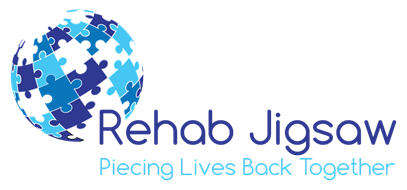In these most challenging of times, we are all navigating new ways to live and indeed work. The recommended guidance for us to adhere to, to “flatten the curve” of the number COVID-19 cases, is impacting so many areas of all of our lives. As Occupational Therapists, we are experts in holistic rehabilitation and have an essential role to play in addressing the debilitating effects of COVID-19. We offer a personalised and occupation-focused approach to care, to support the recovery of people experiencing functional challenges arising from the virus and its treatment, especially where treatment has been received in an Intensive Care Unit (ICU).
The medical professionals and researchers are gaining knowledge and understanding over time of COVID-19, but clinical experience of those delivering front-line care has indicated that the following range of functional issues have been observed in those recovering and which may affect a person’s ability to return to work:
Musculoskeletal/Physical
- Overwhelming fatigue
- Muscle deconditioning
- Global muscle weakness
- Neuropathy
- Reduced range of movement in upper limb
- Upper limb oedema
- Pain and discomfort
- Changes to vision, and sight loss
Cardiopulmonary
- Breathlessness
- Limited exercise tolerance
- Postural hypotension
- Rapid oxygen desaturation during exertion
- Dysfunctional breathing patterns
- Hyperventilation
- Continued cardiac issues e.g. atrial fibrillation and arrhythmias
Communication
- Post intubation swallowing and feeding needs (dysphagia)
- Speech difficulties (dysarthria and dysphasia)
- Difficulty using alternative communication aids due to cognitive and musculoskeletal impairments
Neurological
- Reduced wakefulness
- Impaired consciousness
- Ongoing delirium
- Severe attention deficits and poor concentration
- Visuospatial difficulties
- Agitation
- Disorientation
- Executive dysfunction
- Critical illness neuropathy / myelopathy
Psychological
- Loss of confidence and trust in own body
- Loss of dignity and control
- Anxiety, panic attacks
- Low mood, depression
- Grief
- Problems with body image, related to treatment
- Reduced grounding in own experiences
- Exacerbation or relapse of existing mental health conditions
- Post traumatic stress disorder (PTSD)
It is worth noting that people who are most affected by COVID-19 may be more likely to already have other underlying health conditions and some previous life experiences may increase the likelihood of psychological difficulties arising from COVID-19 treatment.
So, what can our Occupational Therapists at Rehab Jigsaw Ltd do to support an employee to return to work?
- Vocational rehabilitation – including advice on grading of job demands to “work harden”; employer liaison.
- Education and intervention around psychological wellbeing.
- Encourage engagement in meaningful occupations, physical activity and relaxation to promote wellbeing and reduce symptoms of mental ill health.
- Onward referral and collaboration where additional specialist input is required, e.g. cardiac, pulmonary, psychological.
- Breathlessness and fatigue management – education, intervention and review.
- Self-management techniques – pacing, grading, prioritising, relaxation.
- Sleep hygiene education.
- Facilitation of group/individual rehabilitation delivered by other competent professionals, e.g. upskilling and training of therapy assistants, support workers and leisure providers.
- Provision of ‘remote’ services where interventions can be provided effectively via phone or video call.
- Referrals to social prescribing schemes and signposting to community organisations and welfare rights advice.
- Creation of self-management resources suitable for a range of audiences.
- Education, advice and support for family and carers.
Please feel free to contact us at info@rehabjigsaw.co.uk to discuss what assistance our business could provide to your business.




